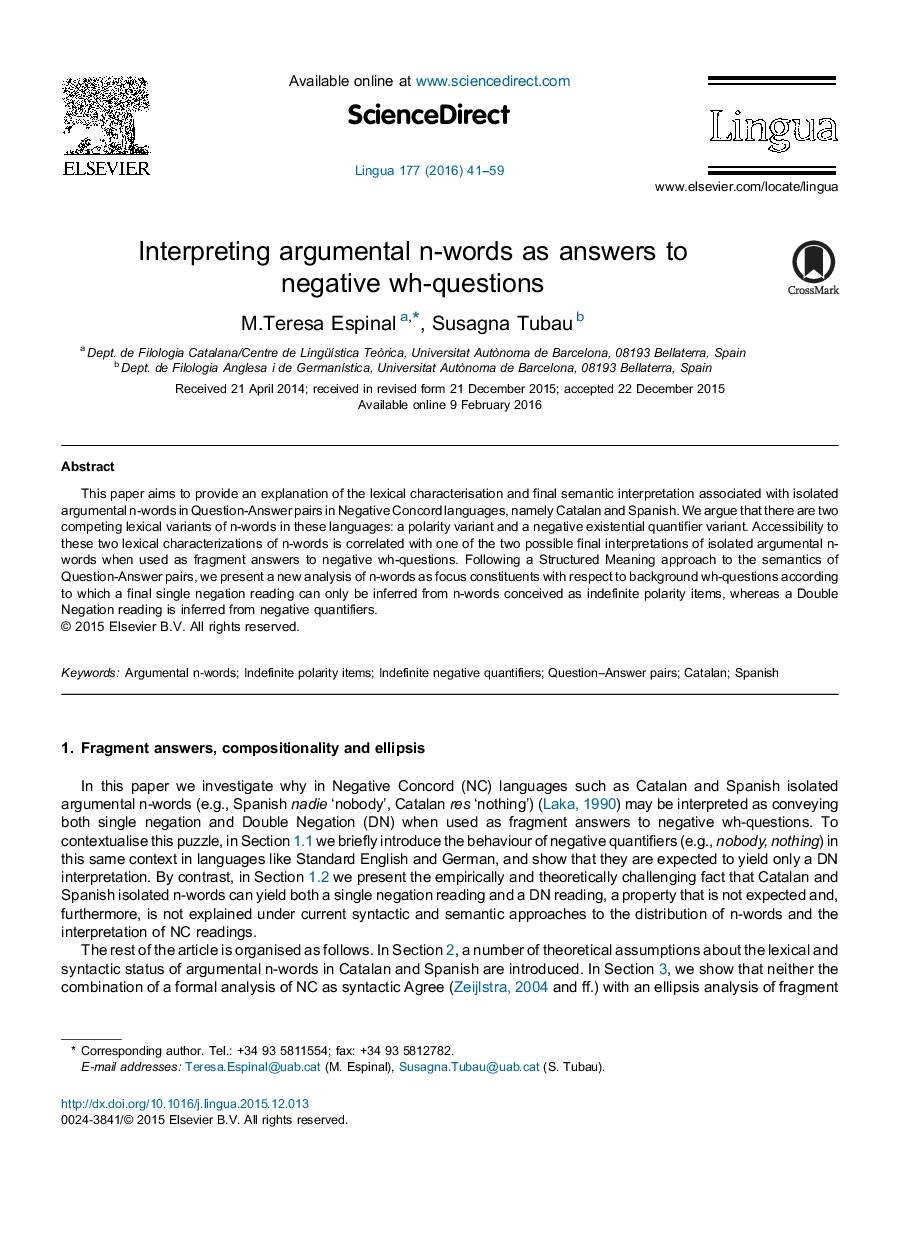| Article ID | Journal | Published Year | Pages | File Type |
|---|---|---|---|---|
| 935477 | Lingua | 2016 | 19 Pages |
•Catalan and Spanish isolated n-words license single negation and Double Negation.•Isolated n-words are focus constituents with respect to background wh-questions.•Two n-word variants condition their reading as answers to negative wh-questions.•A Double Negation reading follows from the negative quantifier variant of n-words.•A single negation reading follows from the polarity item variant of n-words.
This paper aims to provide an explanation of the lexical characterisation and final semantic interpretation associated with isolated argumental n-words in Question-Answer pairs in Negative Concord languages, namely Catalan and Spanish. We argue that there are two competing lexical variants of n-words in these languages: a polarity variant and a negative existential quantifier variant. Accessibility to these two lexical characterizations of n-words is correlated with one of the two possible final interpretations of isolated argumental n-words when used as fragment answers to negative wh-questions. Following a Structured Meaning approach to the semantics of Question-Answer pairs, we present a new analysis of n-words as focus constituents with respect to background wh-questions according to which a final single negation reading can only be inferred from n-words conceived as indefinite polarity items, whereas a Double Negation reading is inferred from negative quantifiers.
